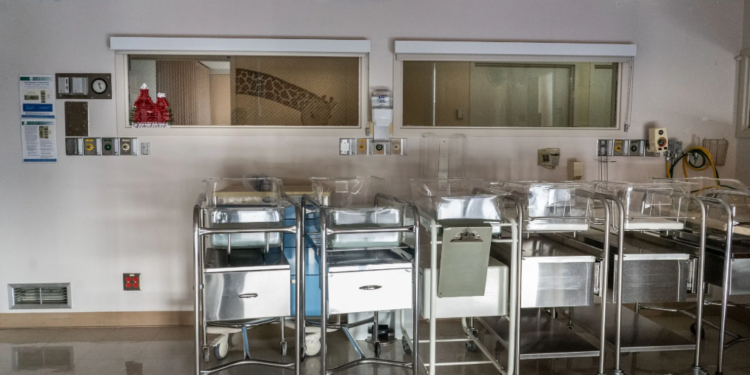Dec 9, 2024 Story by: Editor
In collaboration with Walmart and the PNC National Center for Entrepreneurship, Howard University convened a Maternal Health Panel at its College of Medicine.
This event aligned with the 53rd legislative session of the Congressional Black Caucus, where members advocated for legislation tackling the Black maternal health crisis. Currently, Black women face a maternal mortality rate three times higher than that of white women, with the Centers for Disease Control and Prevention (CDC) estimating that 80% of these deaths are preventable.
Highlighting Black Maternal Health Advocates
Before the panel discussion, Jazmin Long, CEO and founder of Birthing Beautiful Communities in Cleveland, Ohio, and Que English, director of the Center for Faith-Based and Neighborhood Partnerships for the U.S. Department of Health and Human Services (HHS), shared their efforts to reduce Black maternal mortality rates.
Long emphasized that her organization provides free services to Black women, focusing on generational benefits for Black families.
“We train a workforce of doulas…outside of the 70 that we have working for us, there are 200 more that do not work for our organization who choose to become entrepreneurs and practice doula services in their own businesses,” Long stated. “Many of them are not doing this for money. Many of them are doing it because they understand the importance of a mom to have social support and labor and delivery support during birth and labor.”
English discussed her center’s initiatives, which include a 25-city tour aimed at addressing racial and ethnic disparities in maternal mortality. According to English, building community connections is vital to uncovering solutions for reducing Black maternal deaths.
“At every leg of the tour, we introduce them to a village that many don’t even know exist for them around mental health services, health care coverage, lactation, breastfeeding support, resources for babies and for dads and doula and delivery services,” English explained.
Insights from Maternal Health Advocates
The panel was moderated by Dr. Shari Lawson, chair of the Department of Obstetrics and Gynecology at Howard University’s College of Medicine.
“Black maternal health is something that is my passion,” Lawson remarked. “When I first learned about infant mortality, I was just completely struck by the idea that Black babes in America, one of the foremost countries in the world, really have such a terrible survival rate.”
Panelists included Charles Johnson, founder of 4Kira4Moms, Alicia Butler, health equity director at the National Action Network (NAN), and comedian and alumna Angelina Spicer (BFA ’03).
Johnson shared the personal tragedy that led to his advocacy after losing his wife, Kira, in 2016 due to medical negligence during childbirth.
“I was transparent about the fact that when I walked into that hospital, I never thought that my wife would not go out to raise her sons,” Johnson said.
Since then, Johnson has pushed for policies aimed at preventing maternal deaths and holding hospitals accountable.
“I’m making a deliberate call to action that we need to have a goal as a country of zero preventable deaths from pregnancy and pregnancy-related symptoms in the next five years,” he urged.
Spicer’s advocacy emerged from her own experience with postpartum anxiety and depression following her daughter’s birth.
“I felt unprepared, unqualified, overwhelmed,” Spicer said. “The weight of responsibility of being a mom really hit me hard after I had my baby.”
After undergoing a 10-day inpatient psychiatric stay, Spicer used her platform as a comedian to discuss the realities of motherhood and raise awareness about maternal mental health. She embarked on a multi-city tour called The Postpartum Revolution in a pink bus to engage communities.
“It’s important to me that moms know what motherhood truly looks like,” Spicer said.
Butler, deeply troubled by the lack of attention to Black maternal health, has been working at NAN to create solutions through a reproductive justice framework.
“Once I got into the maternal health space, I was mortified to find out that Black women are dying, and nobody cares,” Butler said. “I was able to build out different partnerships…and I realized we needed to approach this from a reproductive justice lens because civil rights organizations acknowledge that race is a factor in all of these implicit biases.”
The panel highlighted the critical need for sustained advocacy and systemic changes to address disparities in Black maternal health outcomes. Source: The DIG
















